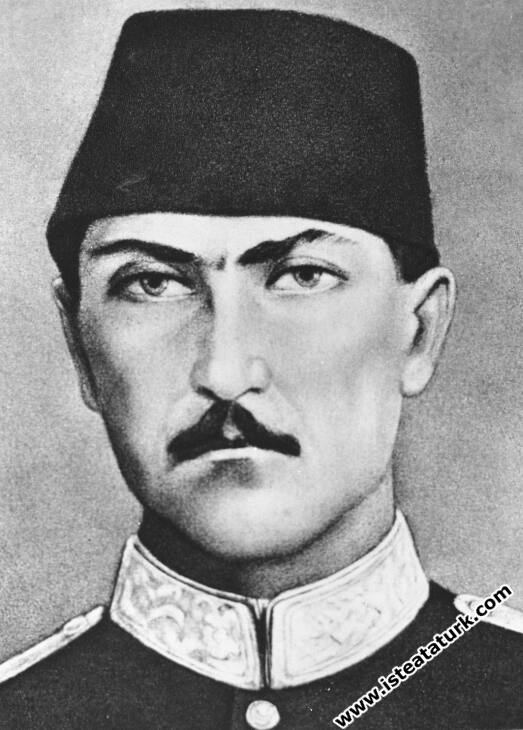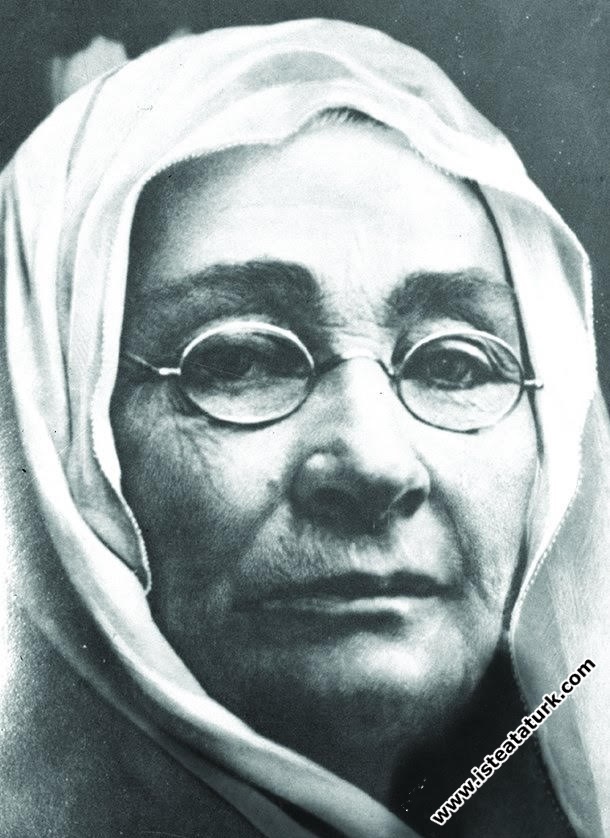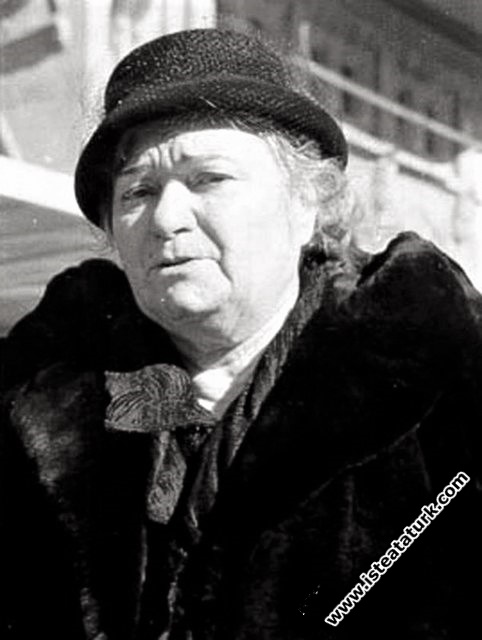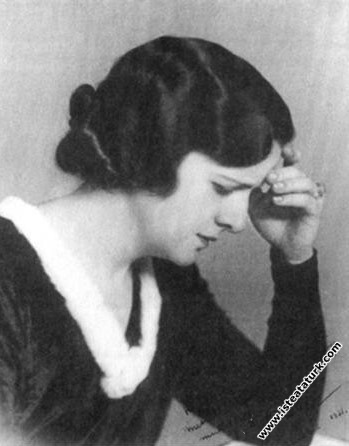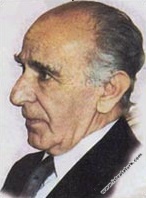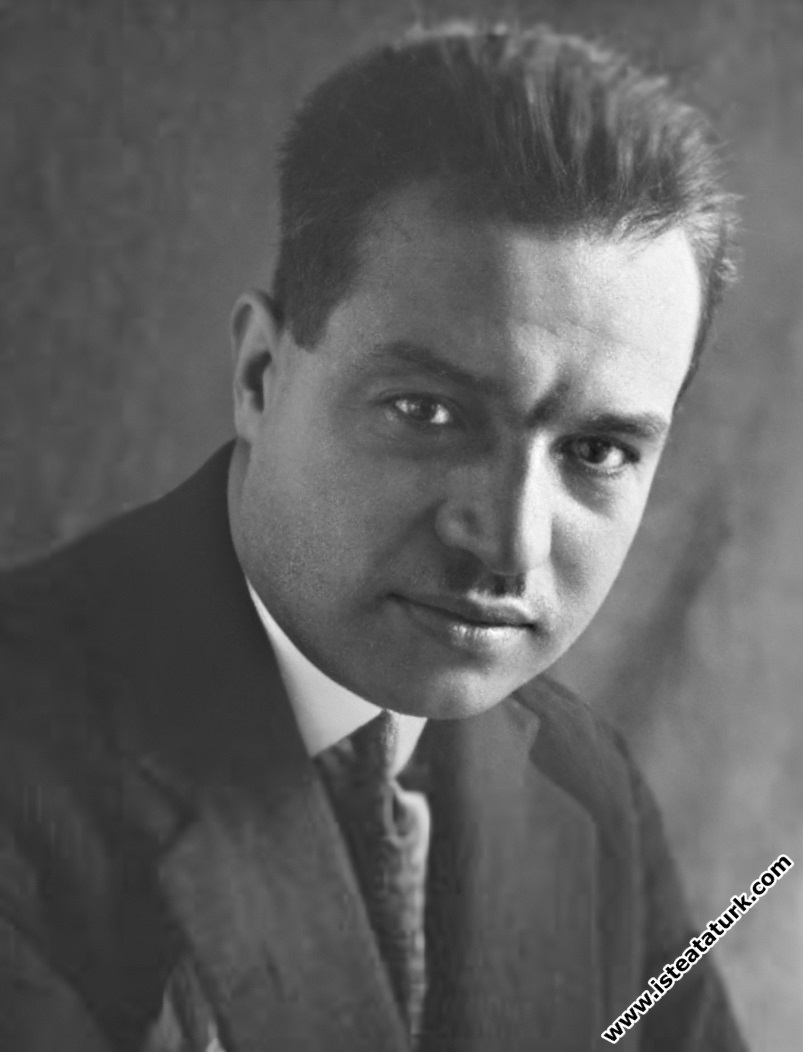
Recep Zühtü Soyak (1893-1966)
Character Size
Life of Recep Zühtü Soyak
RECEP ZÜHTÜ SOYAK (1893-1966)
Recep Zühtü Bey was born in Manastır in 1893 (where his birthplace is referred to as "Filarit" in the documented population registration example). His mother is Fatma Hanım and his father is Hasan Basri Efendi from İpeklioğulları. After receiving his diploma from the Istanbul Vefa High School in 1911, he entered the Beylerbeyi Reserve Officer School (Reserve Officer School). He graduated from this school in 1912 as a reserve officer (lieutenant). He served in the Western Army during the Balkan War. During the war, he was captured by the Greeks in the Filurode Hospital, and after twenty days of captivity he escaped and came to Istanbul via Thessaloniki. Then he participated in the Battle of Gallipoli and the Western Thrace Provisional Government Organization. He participated in the general mobilization announced in 1914 and took part in the battles of the Sinai Front after serving in different continents. He was wounded in the vicinity of Jaffa during the Third Battle of Gaza on this front. After the Armistice of Mudros signed on 30 October 1918, he was discharged from the army.
Recep Zühtü Bey came to Mustafa Kemal Pasha in Amasya in June 1919 and joined the National Struggle voluntarily. From that date on, he served in the editorial offices with his other friends in Erzurum and Sivas congresses. Upon the special instruction given to him by Mustafa Kemal Pasha during the days of the Sivas Congress, he was sent to Malatya by car to follow the Elazig Governor Ali Galip and his friends as 3rd Corps Auxiliary. However, the car he was driving broke down in Kangal due to the bad and muddy roads. Thereupon, he continued on his way, sometimes by car and sometimes by animals, and reached Malatya on the fourth day of his journey. The reports that Recep Zühtü Bey sent from here were very useful in illuminating the Ali Galip incident. Mr. Recep Zühtü, Then he went to Ankara with the Representative Committee. In Ankara, again at the request of Mustafa Kemal Pasha, he started to publish the newspaper Hakimiyet-i Milliye, which was the publication organ of the National Struggle, as of January 1920. He was the director and responsible franchise owner of this newspaper until the end of September 1923. After handing over the Hakimiyet-i Milliye newspaper, he opened his own printing houses under the names of Hakimiyet-i Milliye and Recep Zühtü printing houses and engaged in printing for many years.
Recep Zühtü Bey entered politics with the proclamation of the Republic and served as a deputy for four terms. For the first time, in the 2nd term midterm election held in 1925, he joined the Grand National Assembly of Turkey on January 12, 1925, winning 82 votes to replace Kemalettin Sami Pasha. In the third election period held in 1927, he was again a candidate from Sinop, this time he was elected as a deputy with 347 votes. In the fourth election period in 1931, he received 63 votes from the central district, 140 from the Boyabat district, 87 from the Ayancık district and 82 from the Gerze district, and became a Sinop deputy with a total of 372 votes. In the fifth term elections of 1935, he was a candidate from Zonguldak this time and was elected as a deputy with 761 votes. Thus, he participated in the parliamentary work for four terms as a Sinop deputy between 1925-1935 and once as a Zonguldak deputy between 1935-1939.
Mr. Recep worked in the Budget and Officer Proceedings Committees during his deputyship in Sinop. In the first term of his deputyship in Sinop, he made twenty motions on different subjects, made objections four times on the issues of the country, and took the floor four times on general issues. In the second term of his mandate; He has spoken twice about national affairs. In his third term, he spoke only during negotiations on the creation of a mixed commission to investigate financial laws. In his fourth term as a Zonguldak deputy, he did not have any activity in parliamentary work. During his time in the parliament, he gave parliamentary questions on issues such as the Civil Servants who did not participate in the National Struggle, the Yıldız Casino and the Issue of Hundreds.
Immediately after the general elections of 1935, an investigation was initiated by the Üsküdar Chief Public Prosecutor's Office for the crime of killing a woman named Fatma Medine in Istanbul Çengelköy on February 10, 1935. For this reason, although he was elected as a Zonguldak deputy, he could not attend the opening of the parliament and the swearing-in ceremony. However, after the suspension of the proceedings by the Istanbul and Üsküdar Chief Public Prosecutor's Office, he took an oath on 3 June 1936 and started his duty.
Recep Zühtü Soyak has been among the important names in Atatürk's close circle and his table, both during the National Struggle and after the proclamation of the Republic. Even during his deputyship, he was with Atatürk during his domestic trips and inspections and made interviews with him from time to time as a journalist.
Apart from parliamentary work, Soyak also contributed to the achievements of the Republic in civil life. For example, he was among the founding members of the Turkish Education Association established in 1928, and was a member of the board of directors of Eskişehir Sugar Factory, which was established in 1933.
In the documented population registration sample, it is stated that Recep Zühtü Soyak died on 2 December 1963 in Ankara. However, this date is referred to as “1966” in the TBMM Album (1920-1991) and the Turkish Parliamentary History Research Group File. However, no document could be found showing that he died in 1966.
Kemal SAYLAN
SOURCE
Archive Documents
Devlet Arşivleri Genel Müdürlüğü Cumhuriyet Arşivi
BCA, Belge No: 3-52-8.
BCA, Belge No: 9-52-8.
Türkiye Büyük Millet Meclisi Arşivi (TBMM)
TBMM Tercüme-i Hal Varakası, Belge No: 54, lef. 2-3.
TBMM Seçim Mazbatası, D: 2, Sicil: 616, No: 1-2.
TBMM Seçim Mazbatası, D: 3, Sicil: 616, No: 1-3.
TBMM Seçim Mazbatası, D: 4, Sicil: 616, No: 1-4.
TBMM Seçim Mazbatası, D: 5, Sicil: 616, No: 1-5.
Türkiye Büyük Millet Meclisi 2. Dönem Tutanak Dergisi
Cilt: 14, Birleşim No: 62; Cilt: 15, BirleşimNo: 67; Cilt: 16, BirleşimNo: 81; Cilt: 19, BirleşimNo: 14; Cilt: 20, BirleşimNo: 24-27; Cilt: 22, BirleşimNo: 50; Cilt: 23, BirleşimNo: 70-71-77; Cilt: 24, BirleşimNo: 85; Cilt: 25, BirleşimNo: 100-102-107-108; Cilt: 28, BirleşimNo: 11-27; Cilt: 31, BirleşimNo: 51-54-55-57-61; Cilt: 32, BirleşimNo: 63-64-65; Cilt: 33, BirleşimNo: 76-80-81.
Türkiye Büyük Millet Meclisi 3. Dönem Tutanak Dergisi
Cilt: 2, Birleşim No: 42; Cilt: 12, Birleşim No: 75.
Türkiye Büyük Millet Meclisi 4. Dönem Tutanak Dergisi
Cilt: 1, Birleşim No: 5.
Türkiye Büyük Millet Meclisi 5. Dönem Tutanak Dergisi
Cilt:12, Birleşim No: 73.
Gazeteler
Hakimiyet-i Millîye, 18 Ocak 1923.
Milliyet, 6-7 Aralık 1929 (Gazi ve İnkılâp).
Diğer Yayınlar
GRANDA, Cemal,Atatürk’ün Uşağı İdim, Yazan: Turhan Gürkan, Hürriyet Yayınları, İstanbul Tarihsiz.
ÇOKER, Fahri,Türk Parlamento Tarihi,TBMM-IV. Dönem (1931-1935), Cilt: 1-2-3, Türkiye Büyük Millet Meclisi Vakfı Yayınları, Ankara 1996.
ÖZTÜRK, Kazım,Türk Parlamento Tarihi, TBMM-II. Dönem (1923-1927), Cilt: 1-2-3, Türkiye Büyük Millet Meclisi Vakfı Yayınları, Ankara 1994.
ÖZTÜRK, Kazım,Türk Parlamento Tarihi, TBMM-III. Dönem (1927-1931), Cilt: 1-2-3, Türkiye Büyük Millet Meclisi Vakfı Yayınları, Ankara 1995.
ATATÜRK, Gazi Mustafa Kemal, Nutuk, Kaynak Yayınları, İstanbul 2015.
ÖNDER Selahattin-Oğur, Necmettin,“Eskişehir Şeker Fabrikası”, Eskişehir Osmangazi Üniversitesi Tarih Dergisi, Cilt: 2, Sayı: 2, 2019, s. 25-54.
TBMM Albümü (1920-2010), Cilt: 1, TBMM Basın ve Halkla İlişkiler Müdürlüğü Yayınları, Ankara 2010.
